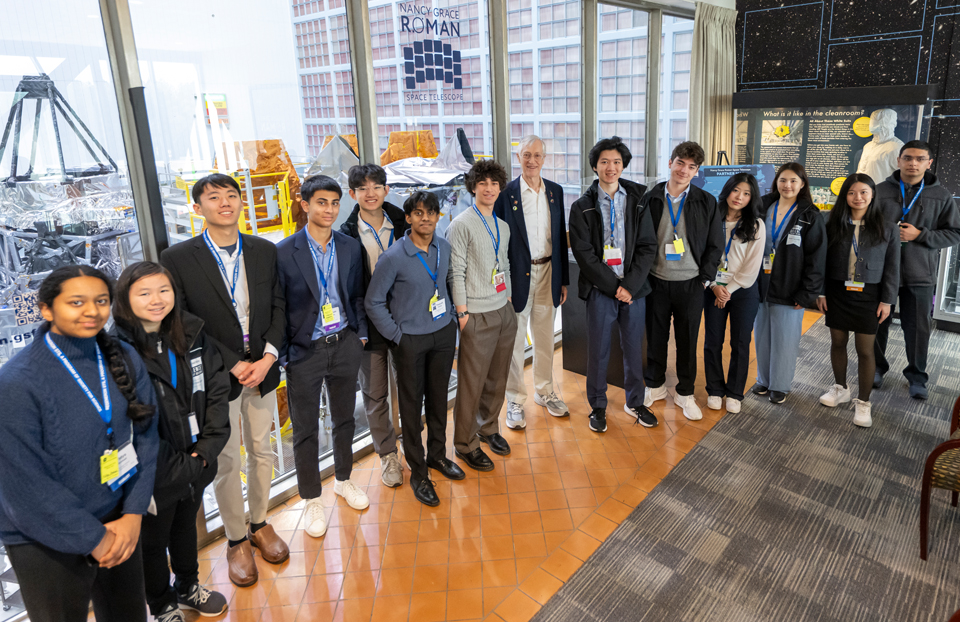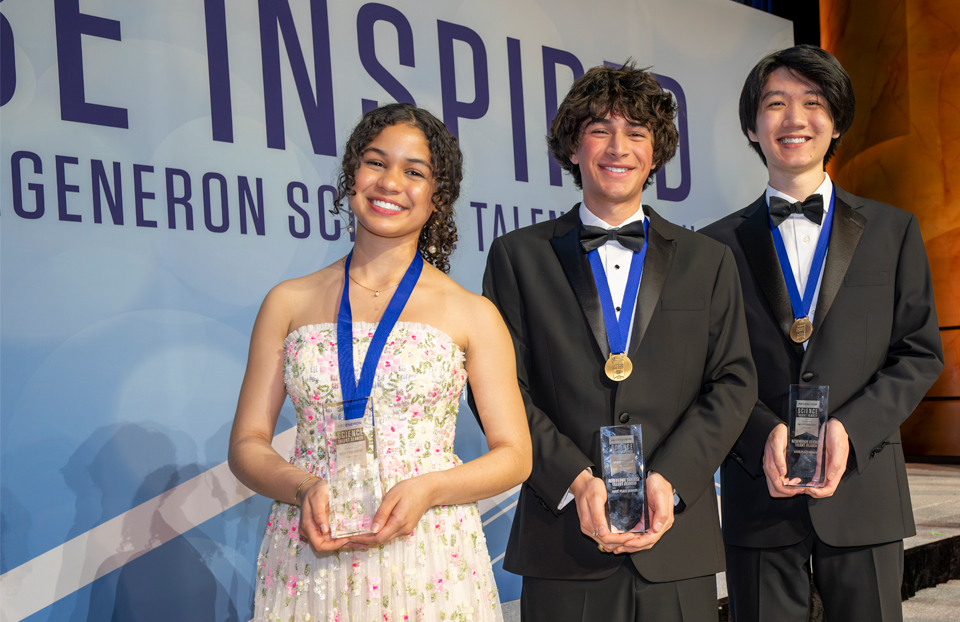Five questions with 7th place winner of the 2019 Regeneron Science Talent Search, Brent Perlman
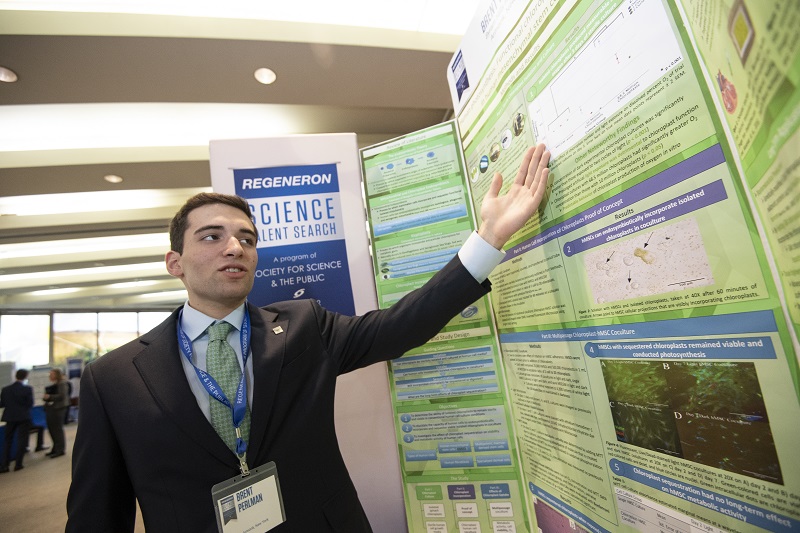
During finals week of the Regeneron Science Talent Search, 40 of the brightest, young scientific minds in the nation travelled to Washington D.C. to showcase their scientific projects to the public. We asked the top 10 winners a variety of questions to learn more about their projects, competition experience and plans for the future. Here is some of what top winner Brent Perlman, 17, a high school senior from Armonk, New York, had to say.
Which sci-fi advancement are you upset we don’t have by now?
Given the pace of biomedical and biotechnological advancement over the past decade, I’m disappointed that scientists haven’t made greater headway into personalized medicine. As our understanding of the patient-specific nature of disease pathologies increases, it seems more and more likely that personalized therapies are the future.
For instance, why doesn’t an affordable, easily implantable, chip-like device that can monitor every aspect of our health exist? After being implanted into a person’s arm or hand, the device could be paired with an app to provide alerts and health updates to both patients and their physicians. By monitoring the changes in concentration of different solutes and substances in blood such as oxygen, iron, cholesterol, hormones and antibodies, the chip could recommend the optimal, personalized time for a person to eat, drink, exercise or sleep in order to maintain the most healthy lifestyle possible. The device could instantly diagnose both chronic diseases such as cancer, diabetes and cardiovascular disease and infectious diseases such as viruses and bacteria, helping physicians to quickly act and avert health crises. In an ideal world, this chip would be able to limit costly and unproductive hospital visits while also helping people to better understand their bodies and take control of their health.
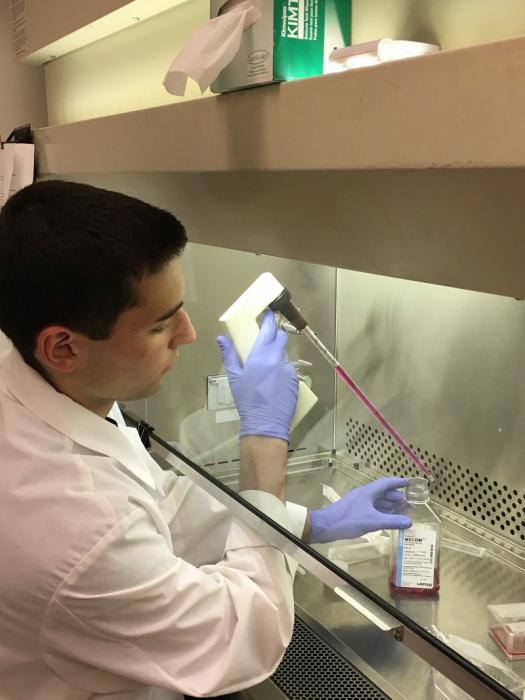
PHOTO COURTESY OF BRENT PERLMAN
Which scientist – alive or deceased – would you want to solve scientific mysteries with and why?
I would want to solve scientific mysteries with the mother of mitochondrial DNA, Margit Nass. Although best known for her research with mitochondria, she published an article in 1969 that documented the ability of mouse cells to incorporate isolated chloroplasts, which are the components of plants that conduct photosynthesis.
Nass’s mitochondrial expertise and research career proved invaluable in dismantling the traditional boundaries between the plant and animal kingdoms of life. Working together, we would engineer the first chimeric chloroplast-humans, which are humans who have chloroplasts inherent in each of their cells. Ideally, these chimeras would be physically superior to normal humans, having more efficient lycolytic metabolisms and increased tissue oxygenation. With these features, chimeras could become the next frontier in the evolution of Homo sapiens, thriving in inhospitable environments both on Earth and in outer space.
What would you invent if you had all the money in the world?
I would establish a non-profit organization of urban planners who would provide nations around the world with specialized, pragmatic plans for the development of carbon-neutral, long-lasting and affordable infrastructure.
My theoretical organization would assess the largest infrastructure deficits of a country in order to develop and implement a green plan to best suit that country’s needs. For instance, in the United States, the organization would focus on implementing a public network of accessible, high speed, electric trains and creating pedestrian-friendly, green city centers to minimize America’s reliance on cars.
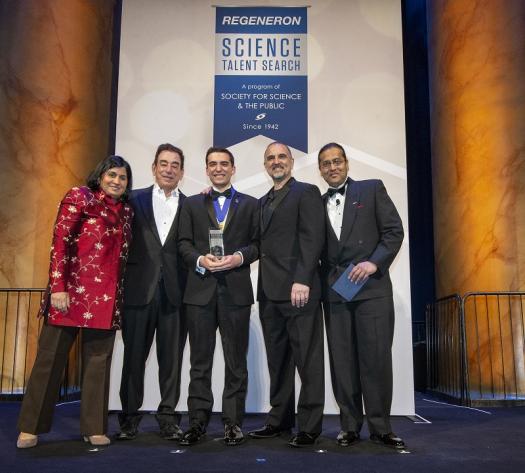
PHOTO COURTESY OF SOCIETY FOR SCIENCE & THE PUBLIC
What would you like to be most renowned for?
It would be awesome to be remembered as the crazy person who took green thumbs a bit too literally and ended up making green, plant-humans. Yet, while the prospect of photosynthesizing humans is exciting, my research does have clinically-relevant applications.
One day, I’d hope that my work may pave the way for low-cost, novel and effective therapies that alter the treatment of disease for the better. In the next decade or two, heart attack and stroke recovery might be as simple as a green injection, cancer might be more easily treated and people might even be able to produce biomolecules and drugs (e.g., insulin and human growth hormone) through injectable, genetically-modified chloroplasts.
Although the possibilities for my research seem endless, ultimately, I hope to be known as someone who leaves the world greener than I found it!
What would you say in order to inspire the next generation of scientists?
As the next generation of leaders, it is your job to innovate and revolutionize previously stagnant fields of science. How? Follow your passions wherever they may lead you. Ask the “dumb” questions that everyone else is too afraid to ask. Be curious and make connections across seemingly unrelated fields. Take risks and learn to appreciate how much you grow when you fail. Most importantly, don’t let anyone tell you that your ideas are naive dreams of an inexperienced high school student. As Miguel de Cervantes says, “In order to attain the impossible, one must attempt the absurd.” With new fields of science popping up every day, there is no better time than now to take charge and innovate. Who knows? You might just change the world.
If you know amazing young scientists like Brent who are interested in entering their original research projects in the 2020 Regeneron Science Talent Search, sign up here.
